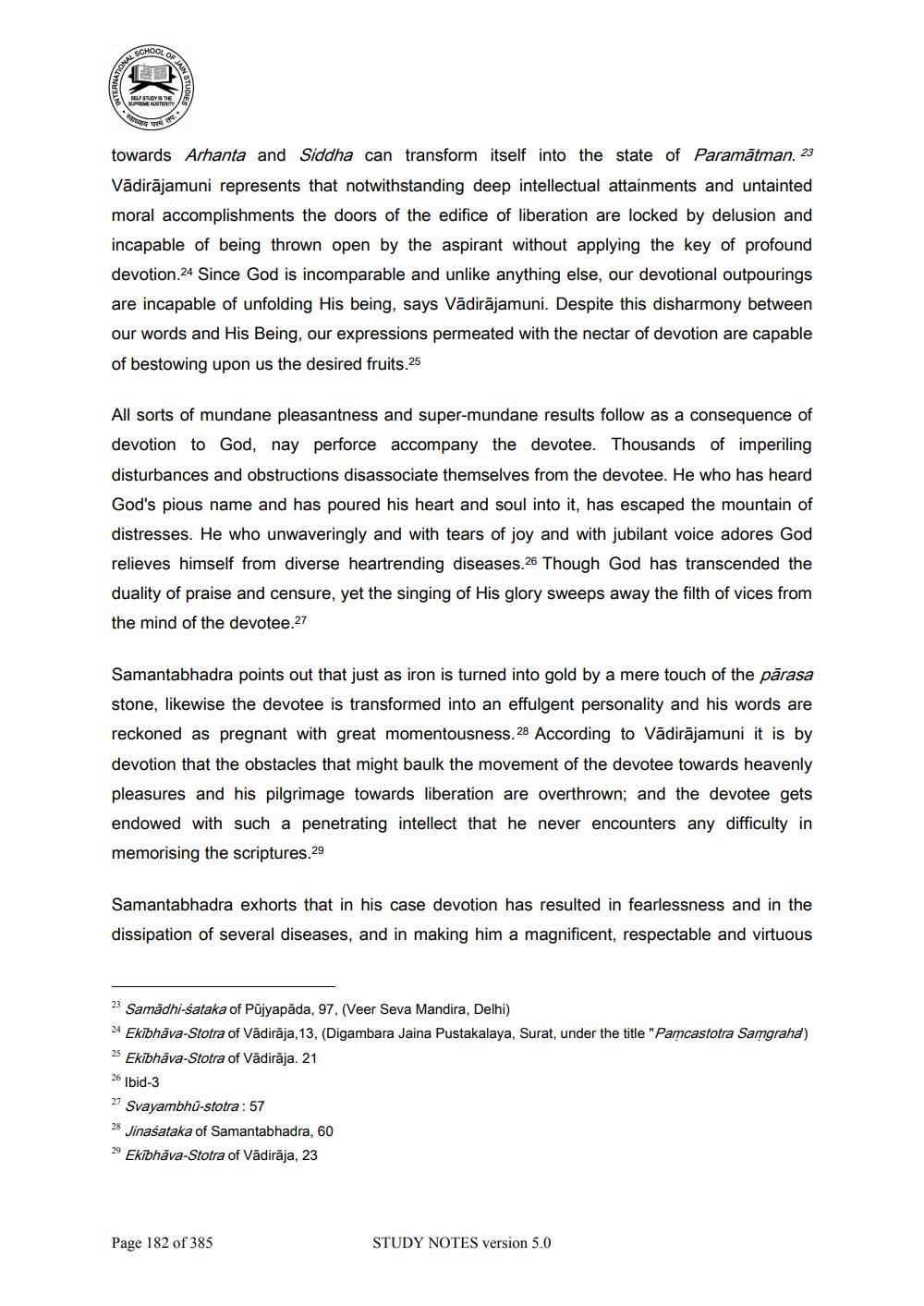________________
towards Arhanta and Siddha can transform itself into the state of Paramātman. 23 Vādirājamuni represents that notwithstanding deep intellectual attainments and untainted moral accomplishments the doors of the edifice of liberation are locked by delusion and incapable of being thrown open by the aspirant without applying the key of profound devotion 24 Since God is incomparable and unlike anything else, our devotional outpourings are incapable of unfolding His being, says Vādirājamuni. Despite this disharmony between our words and His Being, our expressions permeated with the nectar of devotion are capable of bestowing upon us the desired fruits.25
All sorts of mundane pleasantness and super-mundane results follow as a consequence of devotion to God, nay perforce accompany the devotee. Thousands of imperiling disturbances and obstructions disassociate themselves from the devotee. He who has heard God's pious name and has poured his heart and soul into it, has escaped the mountain of distresses. He who unwaveringly and with tears of joy and with jubilant voice adores God relieves himself from diverse heartrending diseases.26 Though God has transcended the duality of praise and censure, yet the singing of His glory sweeps away the filth of vices from the mind of the devotee.27
Samantabhadra points out that just as iron is turned into gold by a mere touch of the pārasa stone, likewise the devotee is transformed into an effulgent personality and his words are reckoned as pregnant with great momentousness. 28 According to Vadirājamuni it is by devotion that the obstacles that might baulk the movement of the devotee towards heavenly pleasures and his pilgrimage towards liberation are overthrown; and the devotee gets endowed with such a penetrating intellect that he never encounters any difficulty in memorising the scriptures.29
Samantabhadra exhorts that in his case devotion has resulted in fearlessness and in the dissipation of several diseases, and in making him a magnificent, respectable and virtuous
23 Samadhi-sataka of Pujyapāda, 97, (Veer Seva Mandira, Delhi) 24 Ekibhāva-Stotra of Vadiraja, 13, (Digambara Jaina Pustakalaya, Surat, under the title "Pamcastotra Samgraha) 25 Ekibhāva-Stotra of Vädirāja. 21 26 lbid-3 27 Svayambhū-stotra : 57 28 Jinašataka of Samantabhadra, 60 29 Ekibhāva-Stotra of Vädirāja, 23
Page 182 of 385
STUDY NOTES version 5.0




